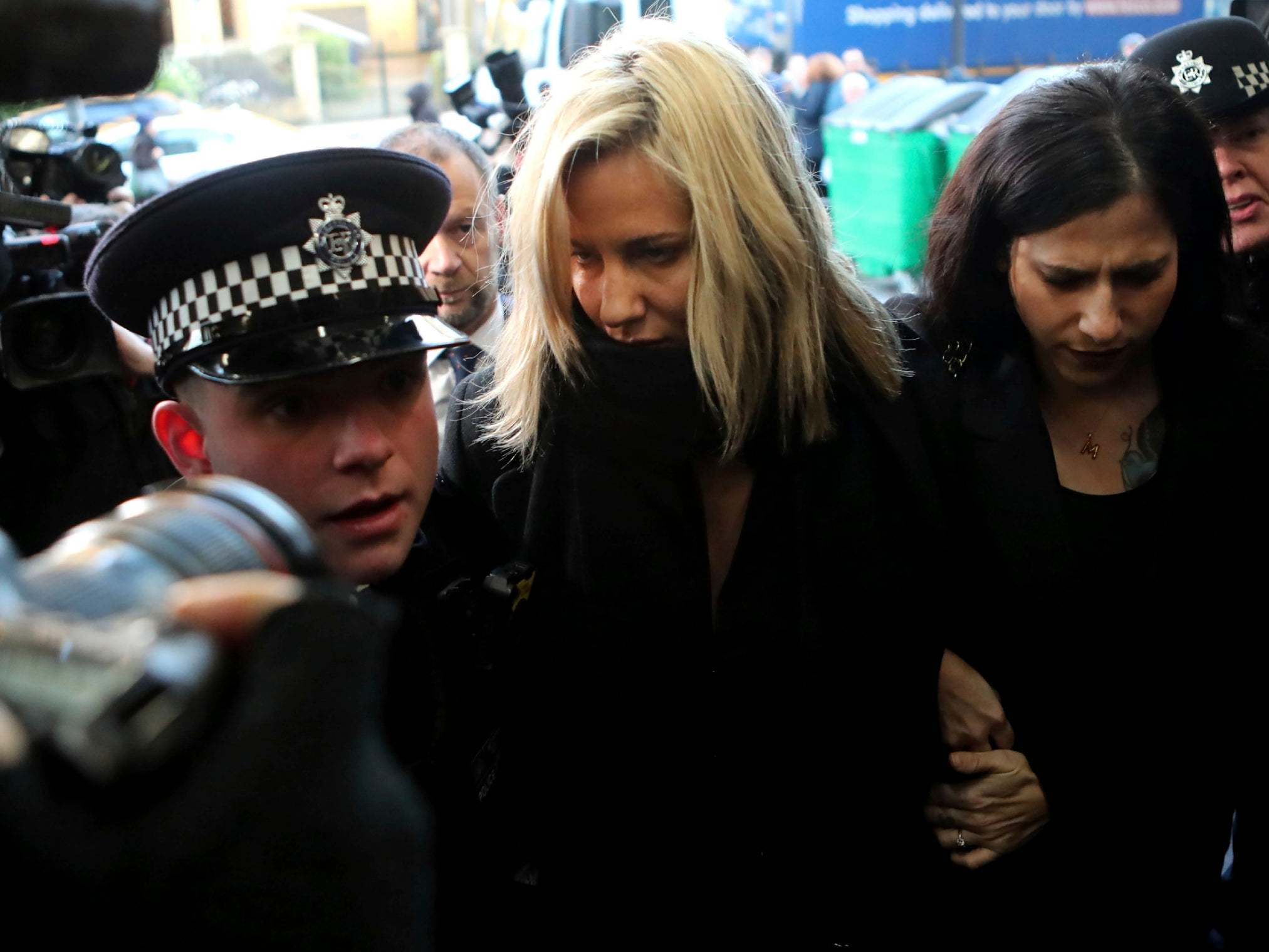Caroline Flack: ‘No causal link’ between police actions and presenter’s suicide, watchdog finds
No action to be taken against officers who had contact with presenter after independent and internal reviews find no misconduct
A watchdog has found that there was “no causal link” between the actions of police officers and Caroline Flack's suicide.
The Independent Office for Police Conduct (IOPC) announced that it would not be investigating the Metropolitan Police over the presenter’s death, despite concerns raised by her loved ones over the handling of an assault charge.
“Having considered a mandatory referral from the Metropolitan Police, we decided the matter did not require investigation by the IOPC because there was no indication of a causal link – directly or indirectly – between the actions or omissions of the police and Caroline Flack’s tragic death,” a spokesperson said.
“Officers last had contact with Ms Flack on 13 December 2019, when she was in custody, nearly two months before her death.
“While in custody on 13 December, officers arranged for her to see a healthcare professional, and relevant policy and procedure was followed to give her further guidance.”
The IOPC passed the case to Scotland Yard’s internal Directorate of Professional Standards, which “concluded that a formal investigation is not required”.
A spokesperson for the Metropolitan Police said: “A comprehensive review of the circumstances surrounding all police contact with Ms Flack following her arrest and detention has already taken place as part of the referral process. No [mis]conduct has been identified on the part of any officer.
“In line with normal processes, if any new information should come to light, it will be considered and action taken as appropriate.”
Flack took her own life while awaiting trial for allegedly assaulting her boyfriend, Lewis Burton.
The circumstances will be examined in greater detail at an upcoming coroner’s inquest.
The former Love Island presenter, who was described as “vulnerable” by her management, was seen crying at Highbury Corner Magistrates’ Court in December.
After the hearing, Flack posted a statement on Instagram saying it would be a “relief” to give her side of the story when she could.
In an unpublished Instagram post released by her parents following her death, the presenter detailed her frustration at losing her “ability to speak” amid intense media attention in the wake of her arrest.
“Within 24 hours my whole world and future was swept from under my feet and all the walls that I had taken so long to build around me collapsed,” Flack had written.

“I have always taken responsibility for what happened that night. Even on the night. But the truth is... it was an accident.”
Flack said she had been having an “emotional breakdown for a very long time”, adding: “The truth has been taken out of my hands and used as entertainment.
“I can’t spend every day hidden away being told not to say or speak to anyone.”
Burton, who had dialled 999 from Flack’s home in Islington on 12 December, rejected allegations that she hit him with a lamp.
In an emotional tribute on Instagram, he said his heart was “broken” following her death and vowed to “get all the answers”.
The Crown Prosecution Service (CPS) defended its decision-making after Flack’s management criticised what it called a “show trial” but will be conducting an internal case review.
It said every decision is based on a two-stage test in the Code for Crown Prosecutors, which is applied equally to all types of crime.
“Guidance for prosecutors when considering domestic abuse allegations gives specific advice on how to proceed when a complainant does not want to support a prosecution, which can often be a feature of these difficult cases,” the CPS said.
“It provides guidance on the information required to understand why a complainant may withdraw support and the different options that should be considered, including proceeding without the complainant’s support if other evidence is available.”
In addition to criticism of the police and the CPS, Flack’s death has sparked scrutiny of news organisations and social media over their treatment of the presenter in the criminal case, and in her career and personal life.
If you are experiencing feelings of distress and isolation, or are struggling to cope, The Samaritans offers support; you can speak to someone for free over the phone, in confidence, on 116 123 (UK and ROI), email jo@samaritans.org, or visit the Samaritans website to find details of your nearest branch.
For services local to you, the national mental health database – Hub of Hope – allows you to enter your postcode to search for organisations and charities who offer mental health advice and support in your area.

